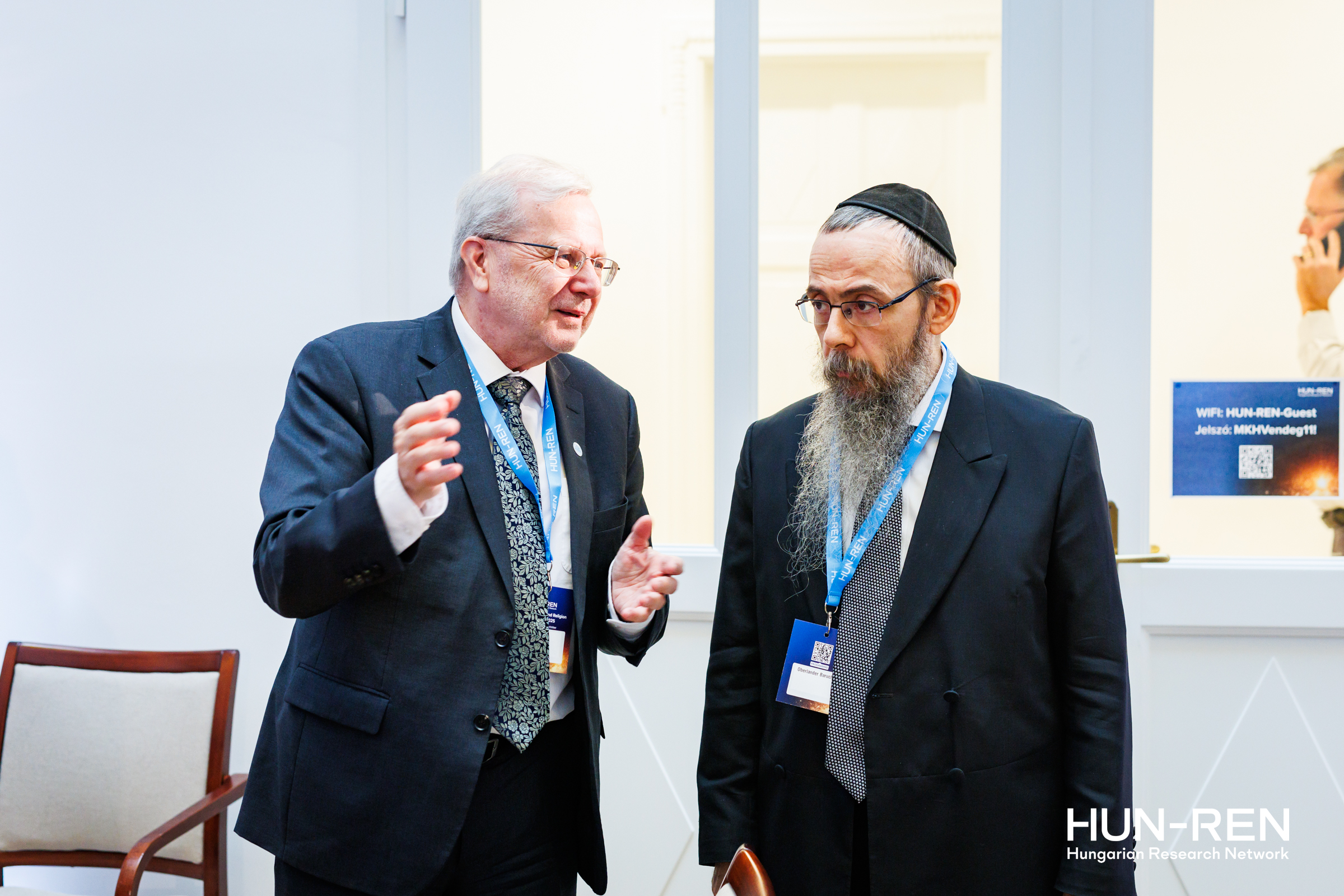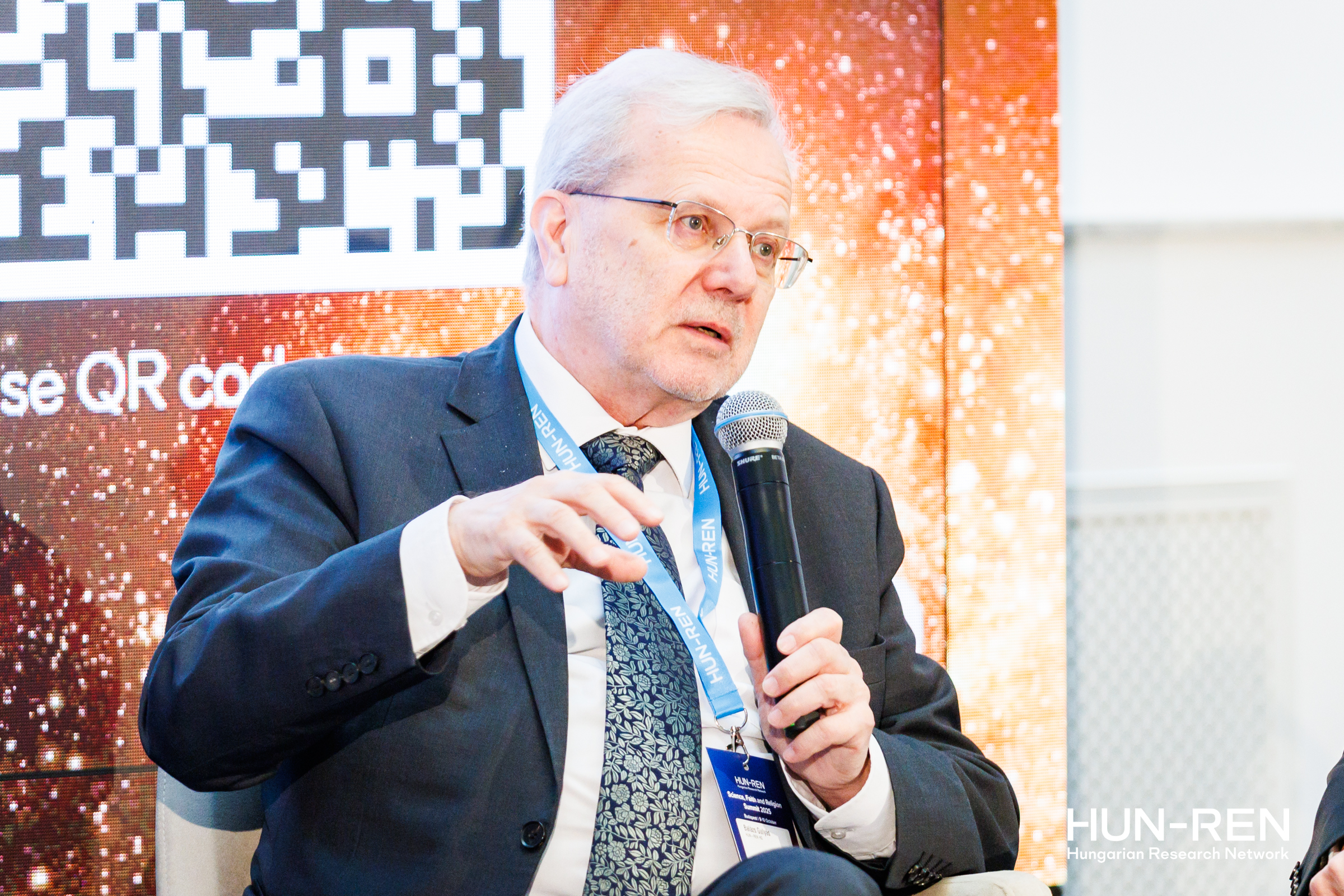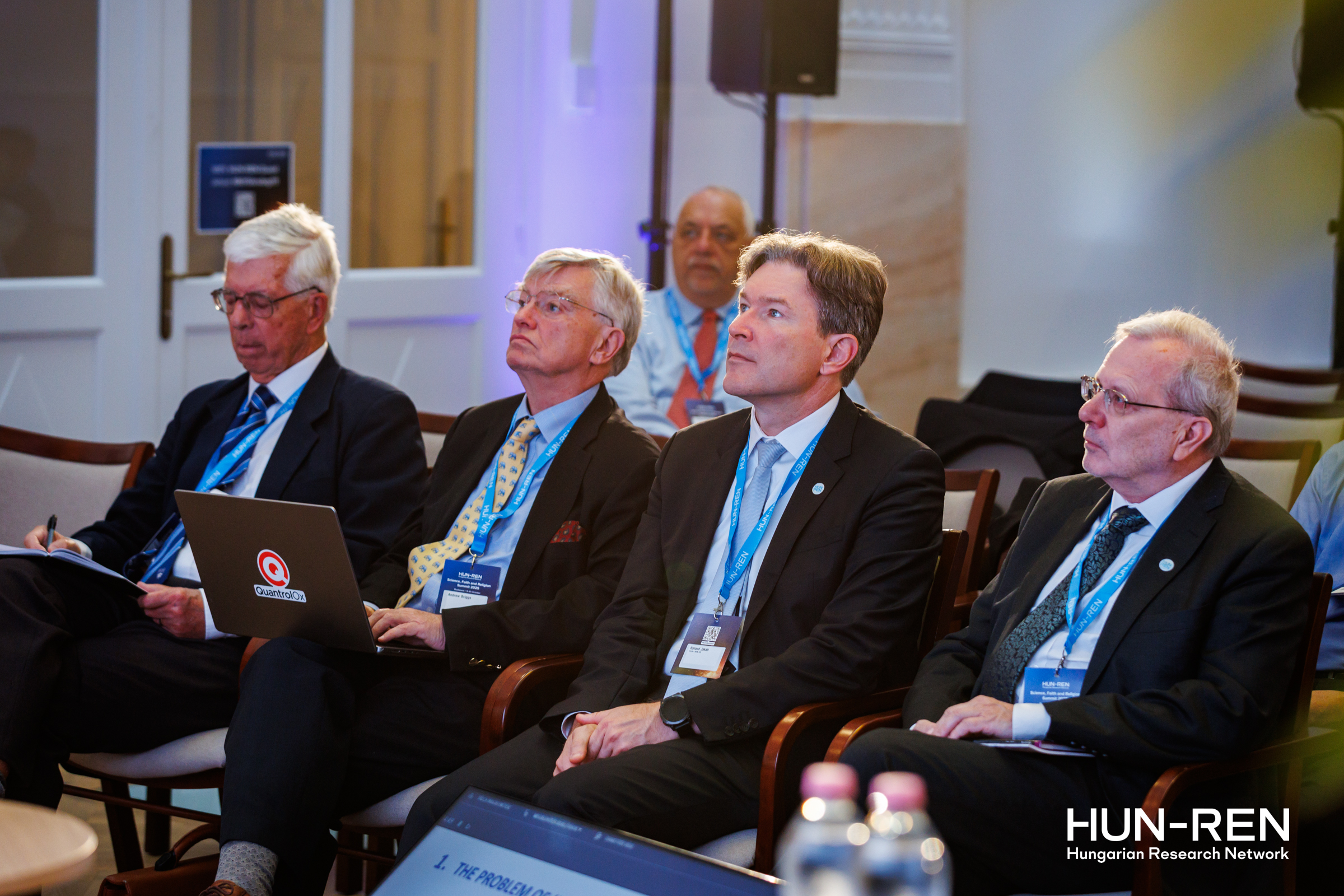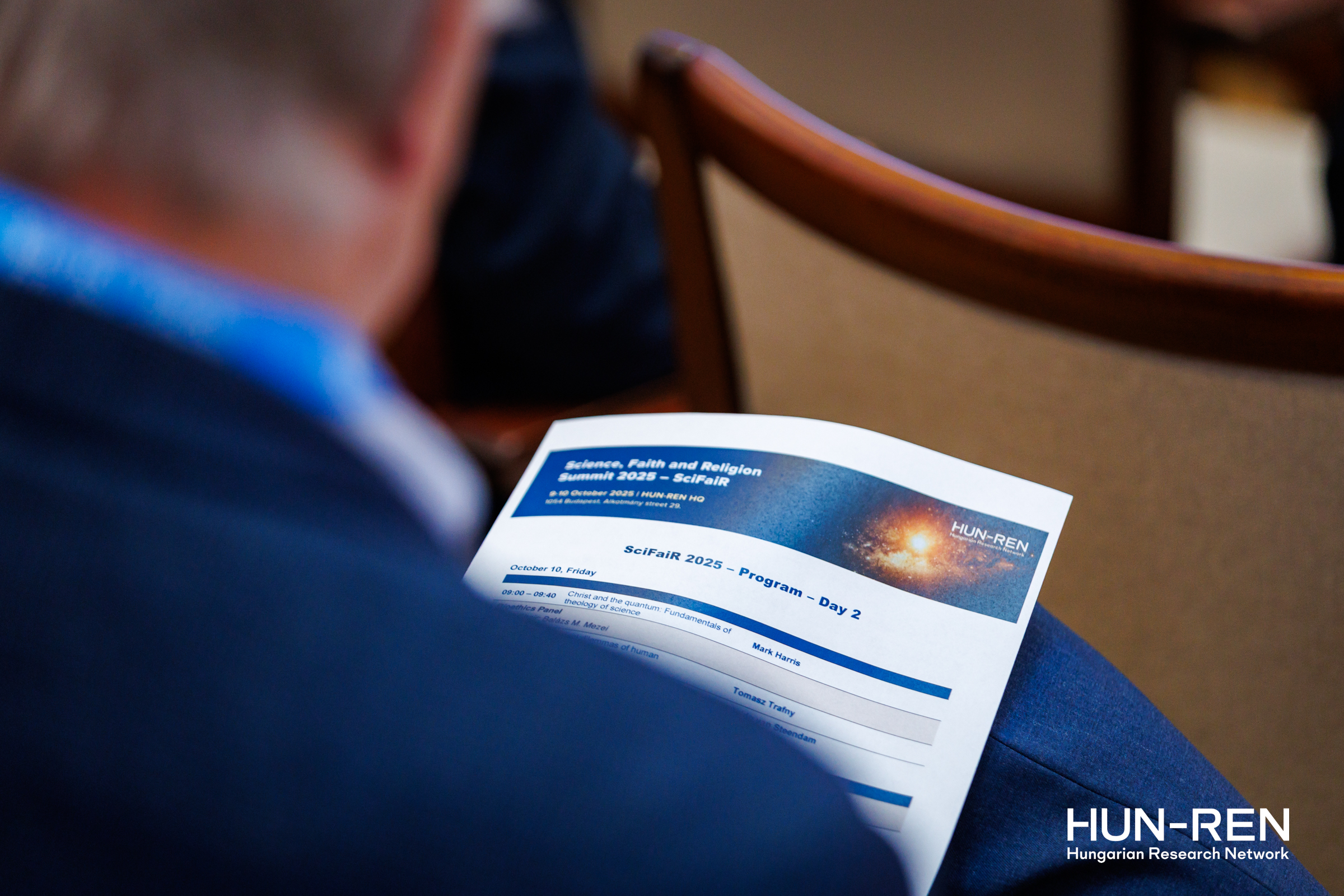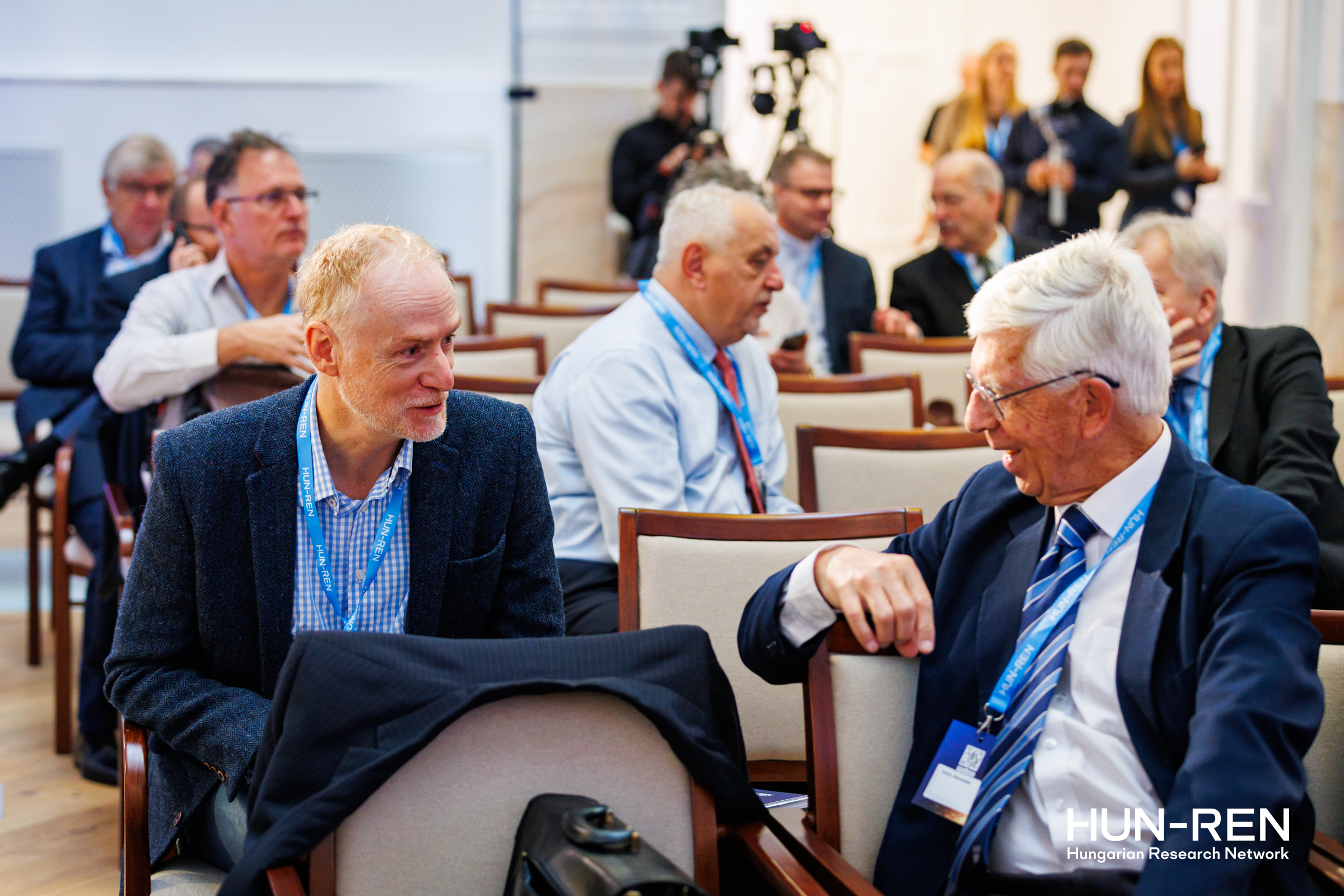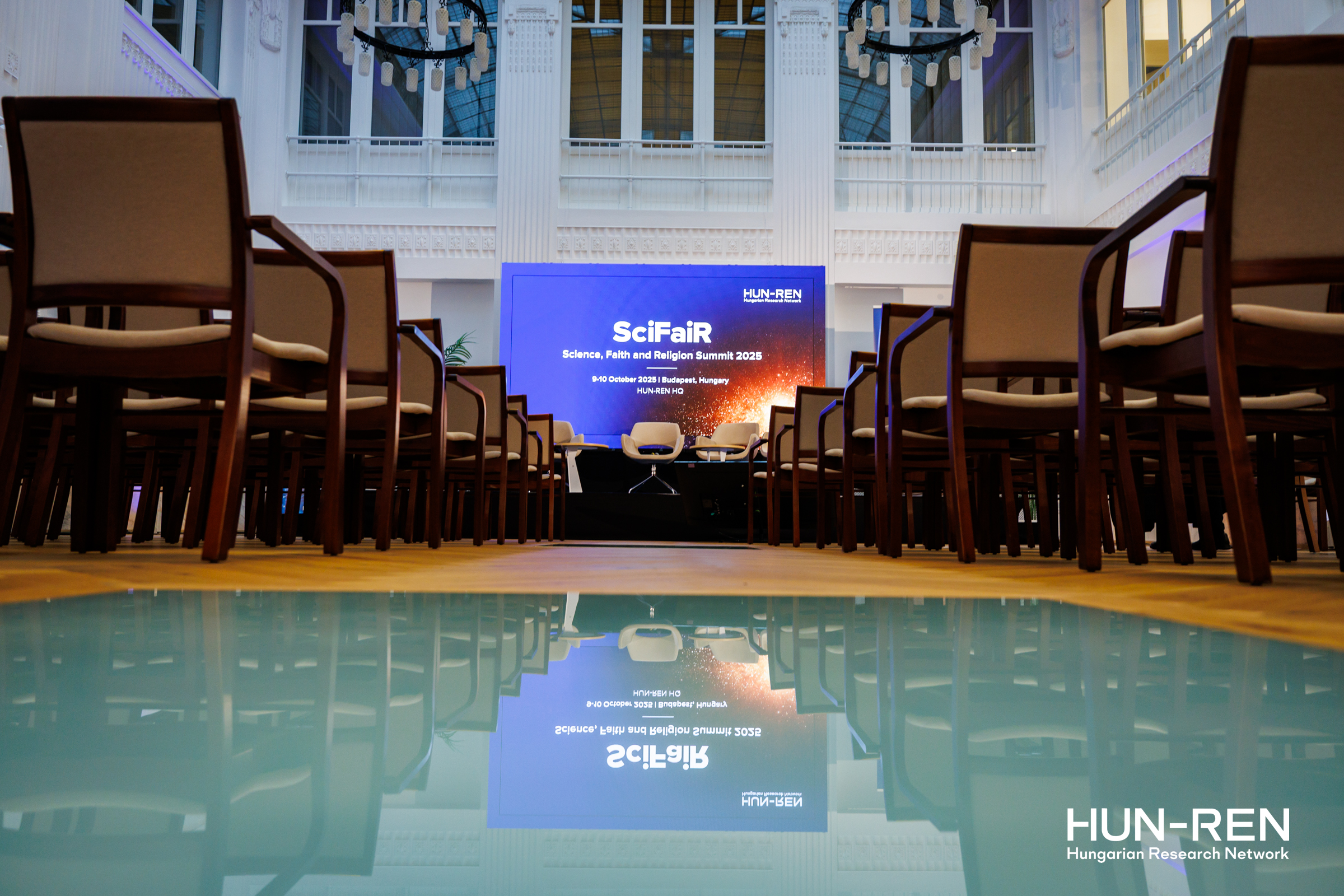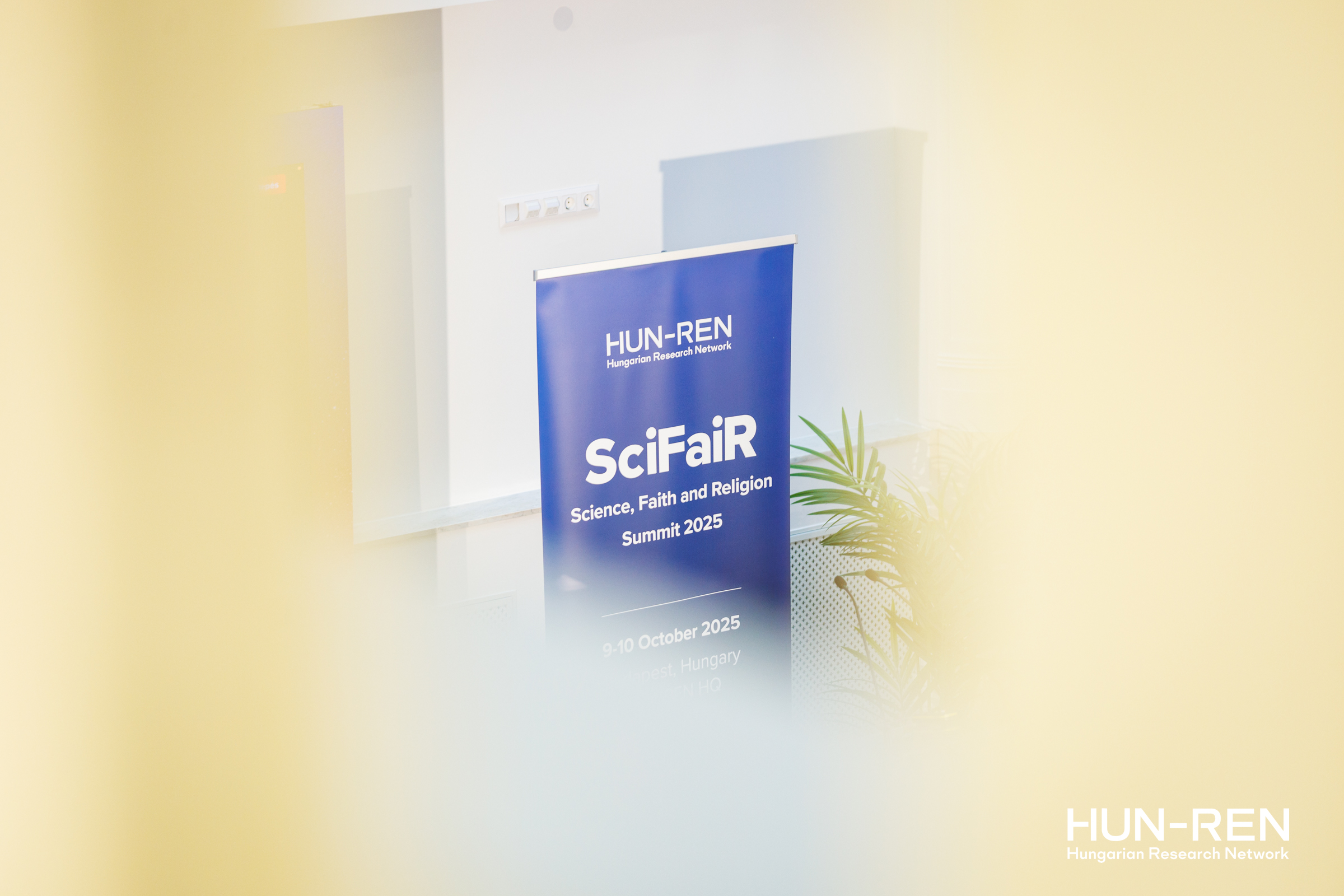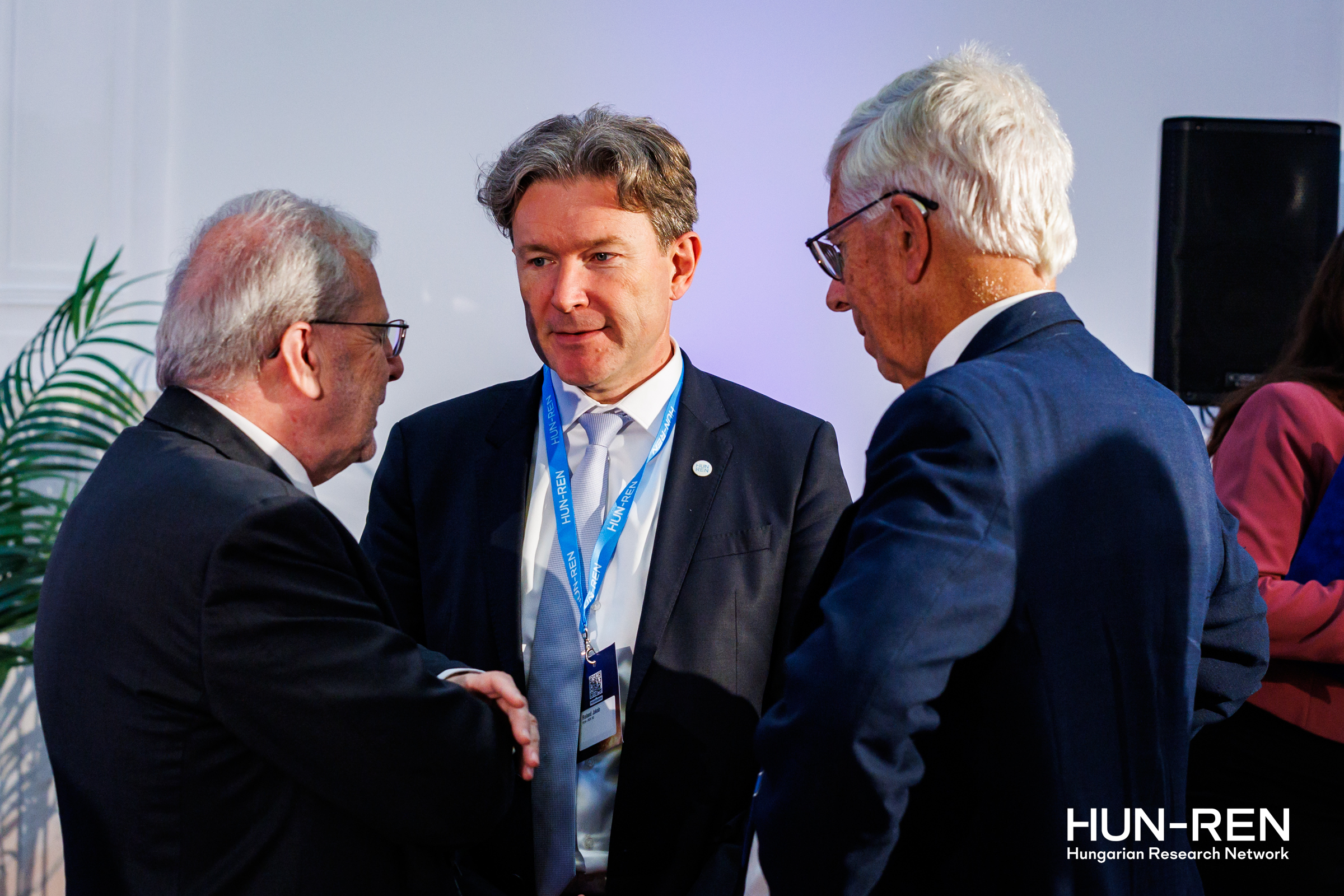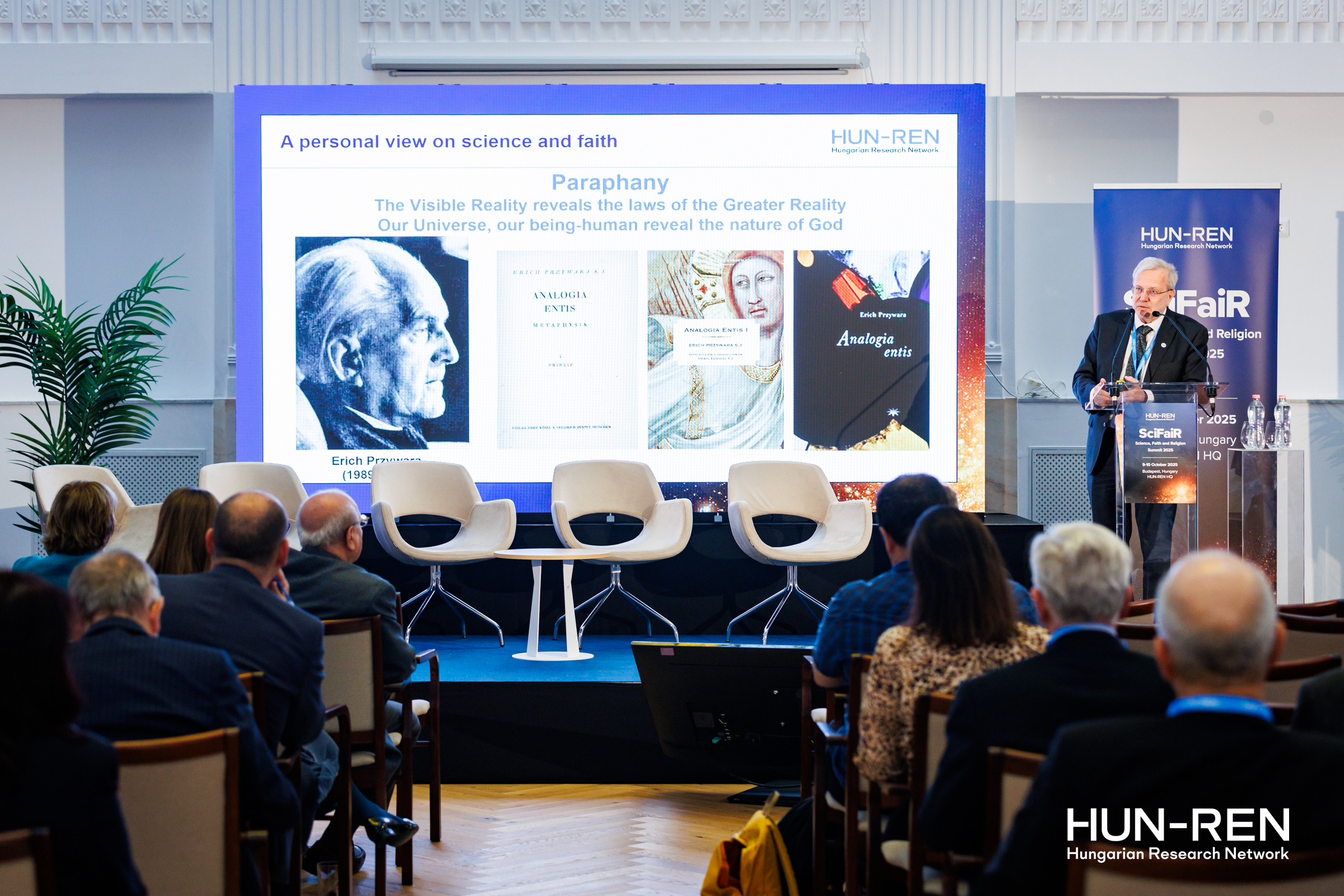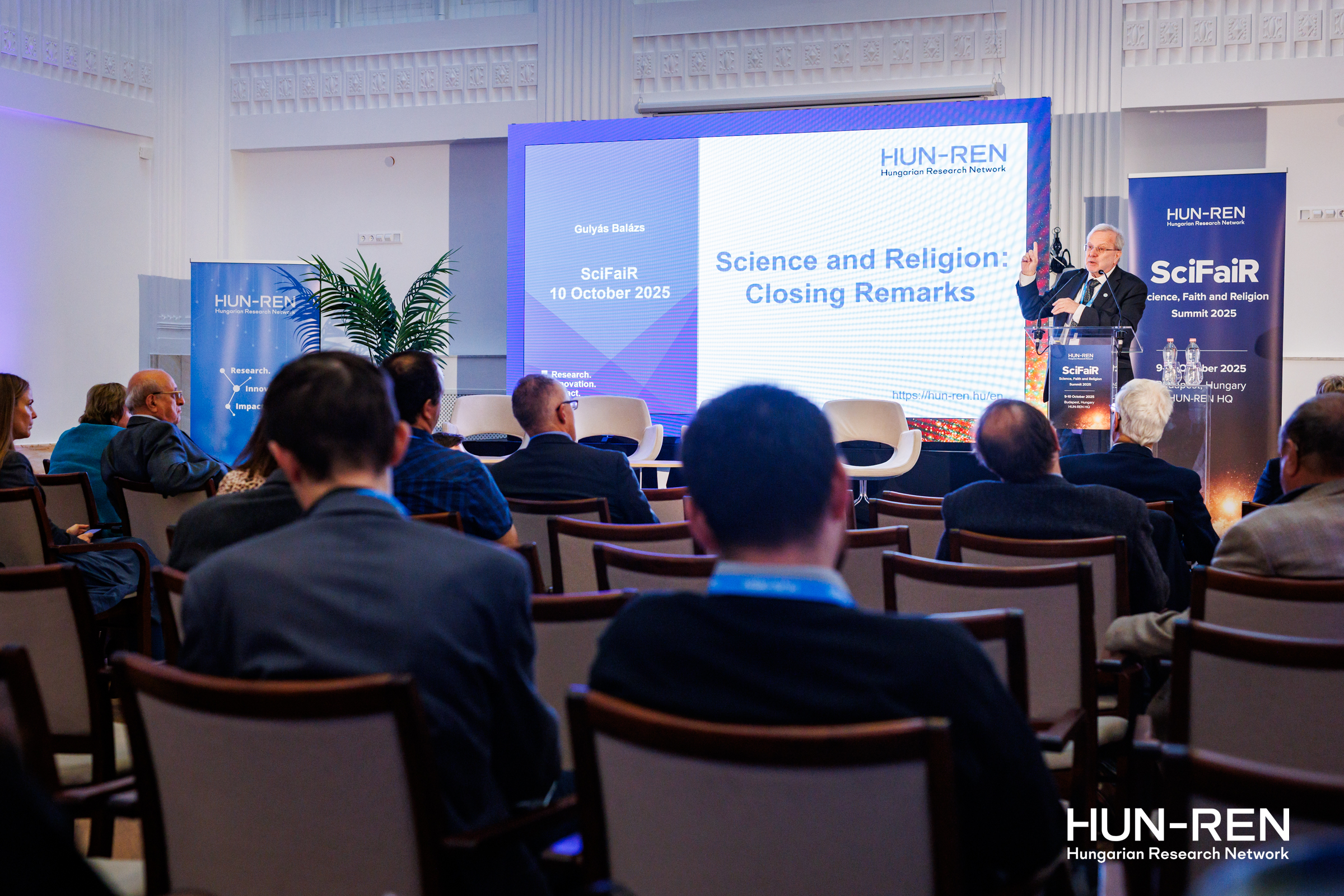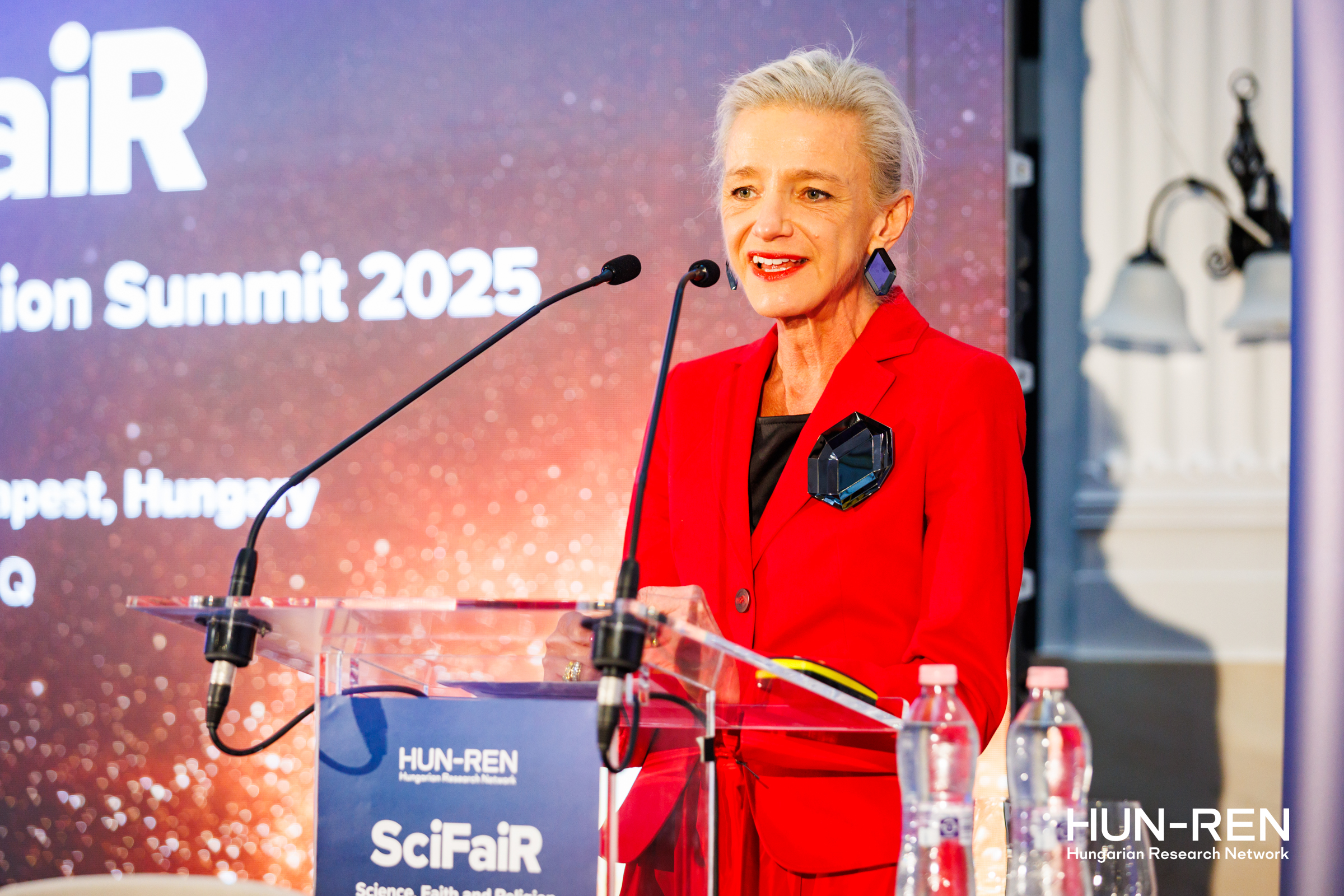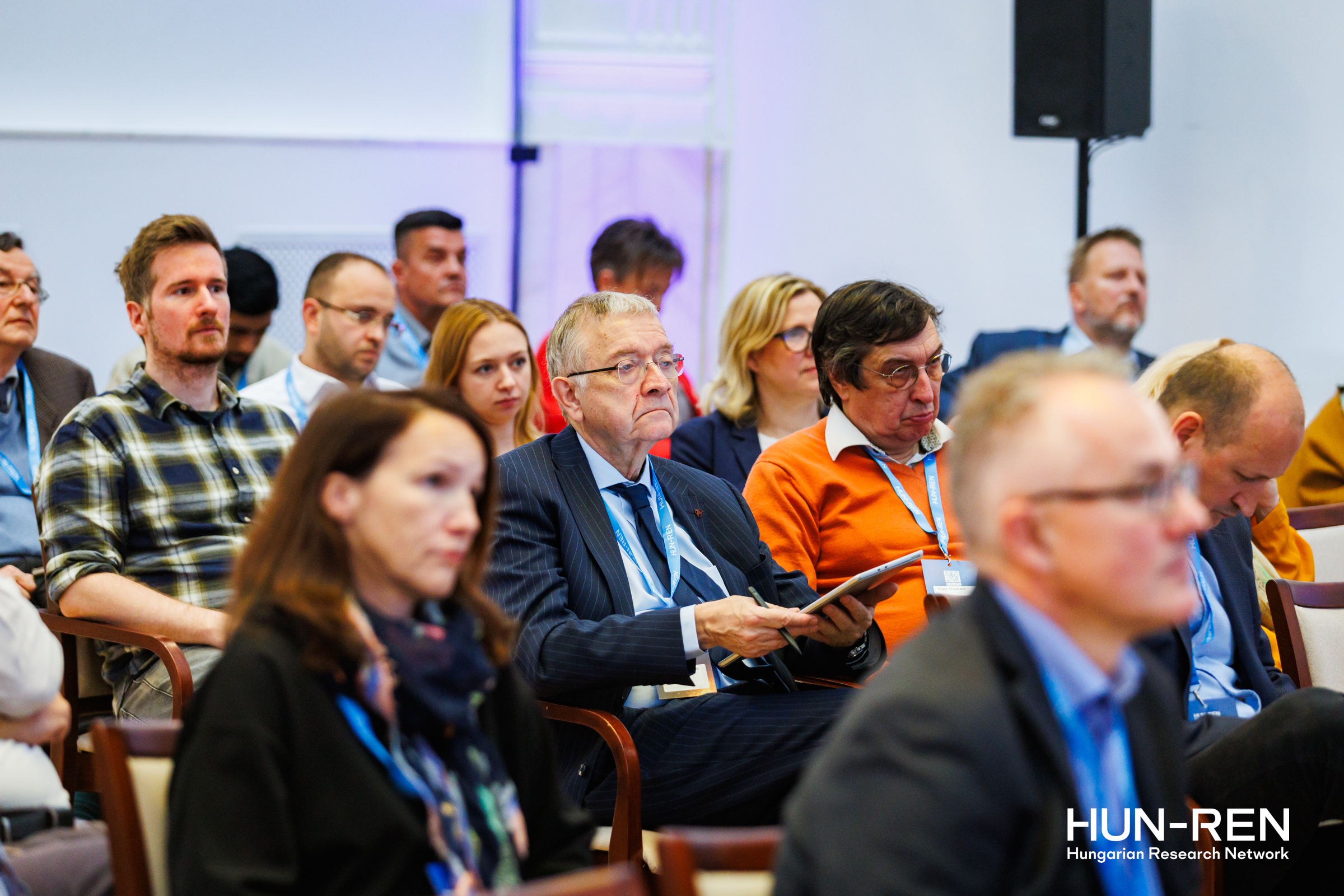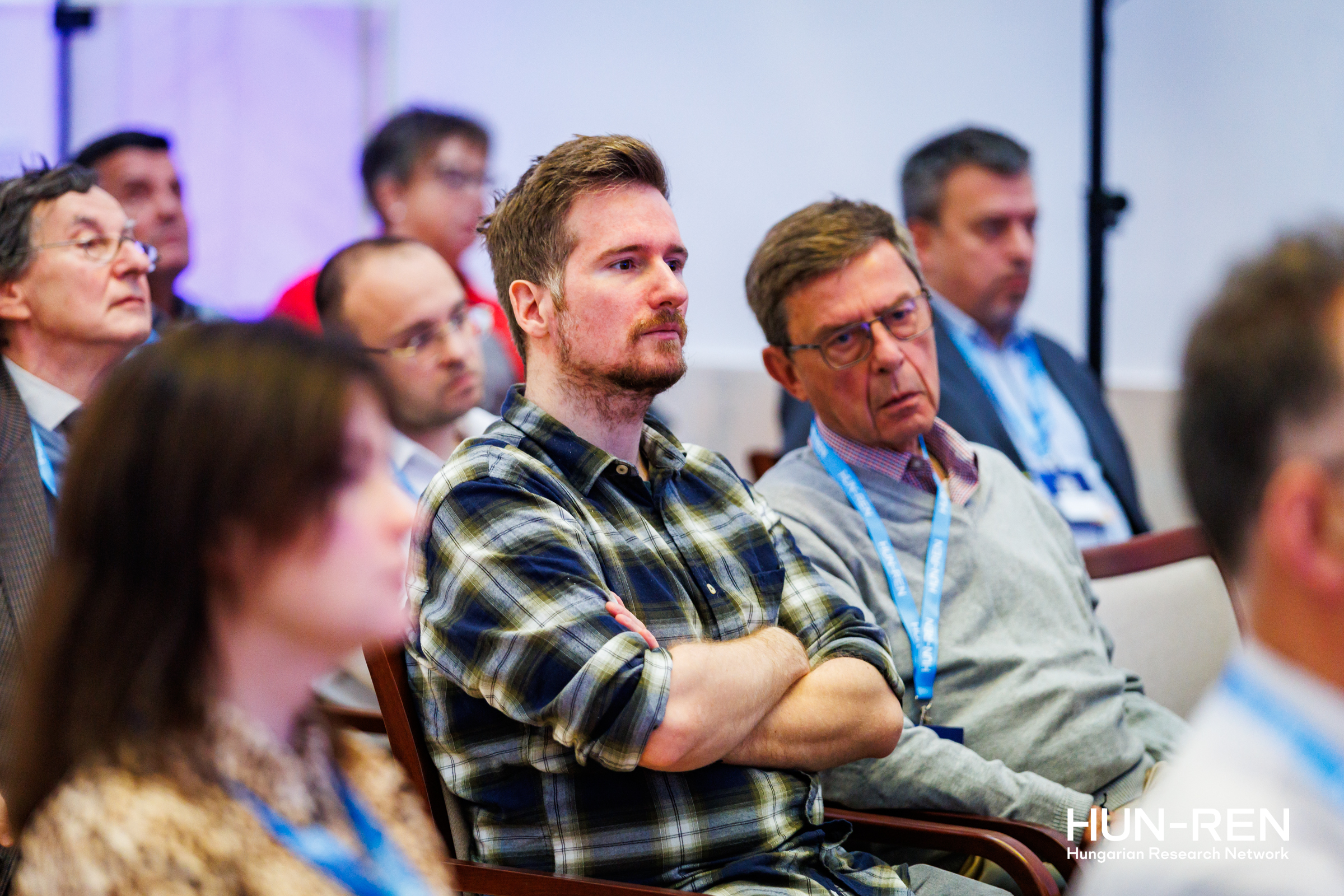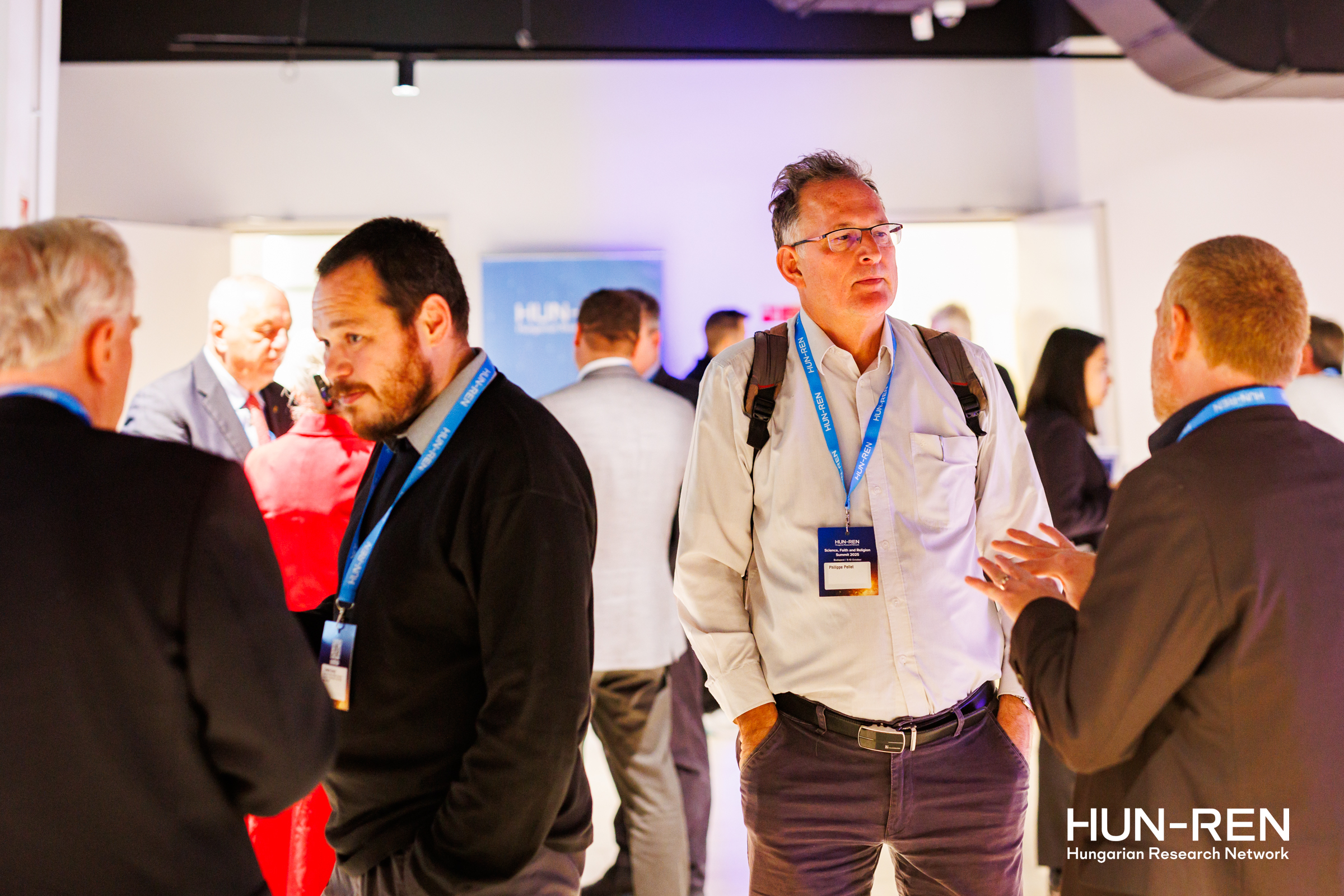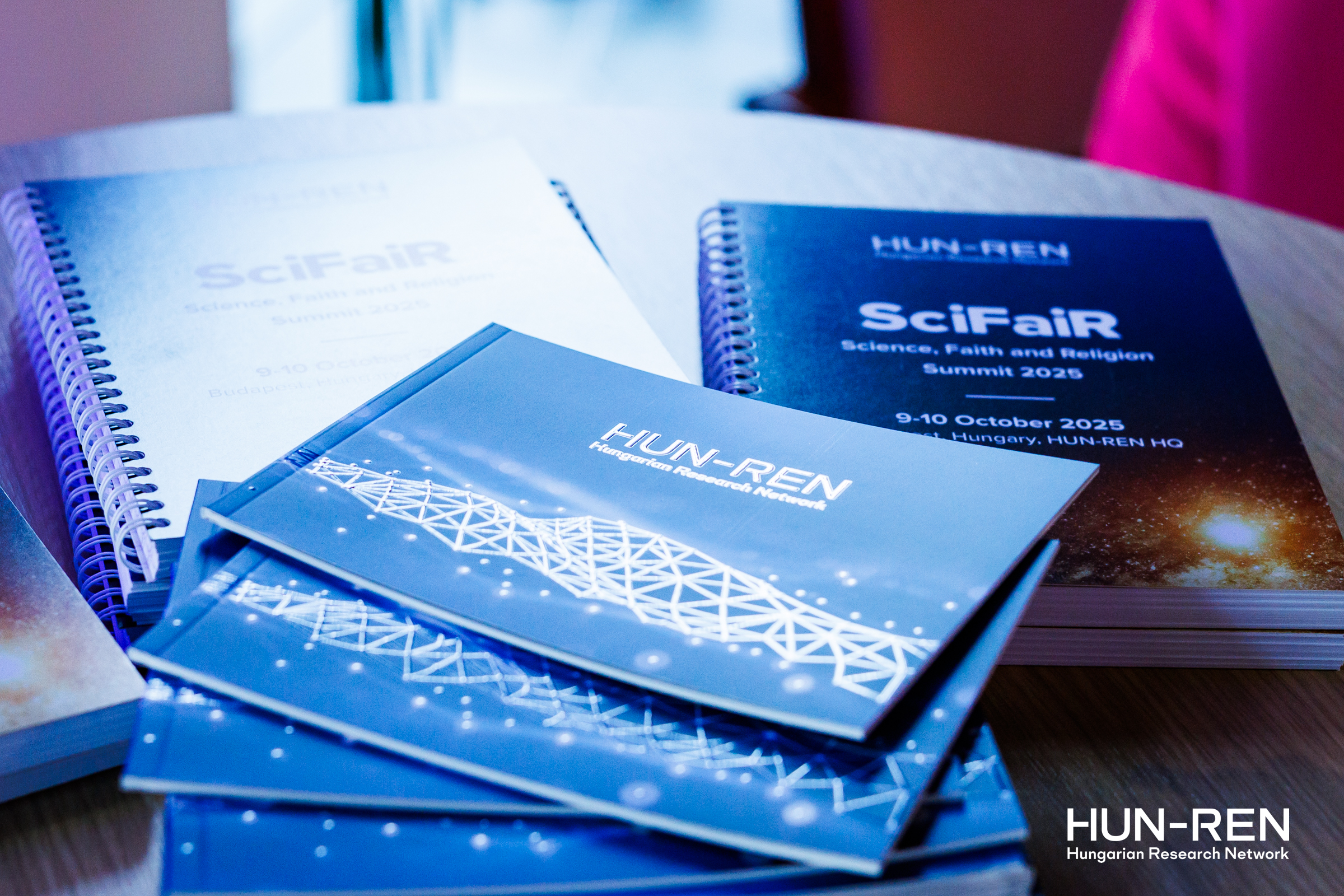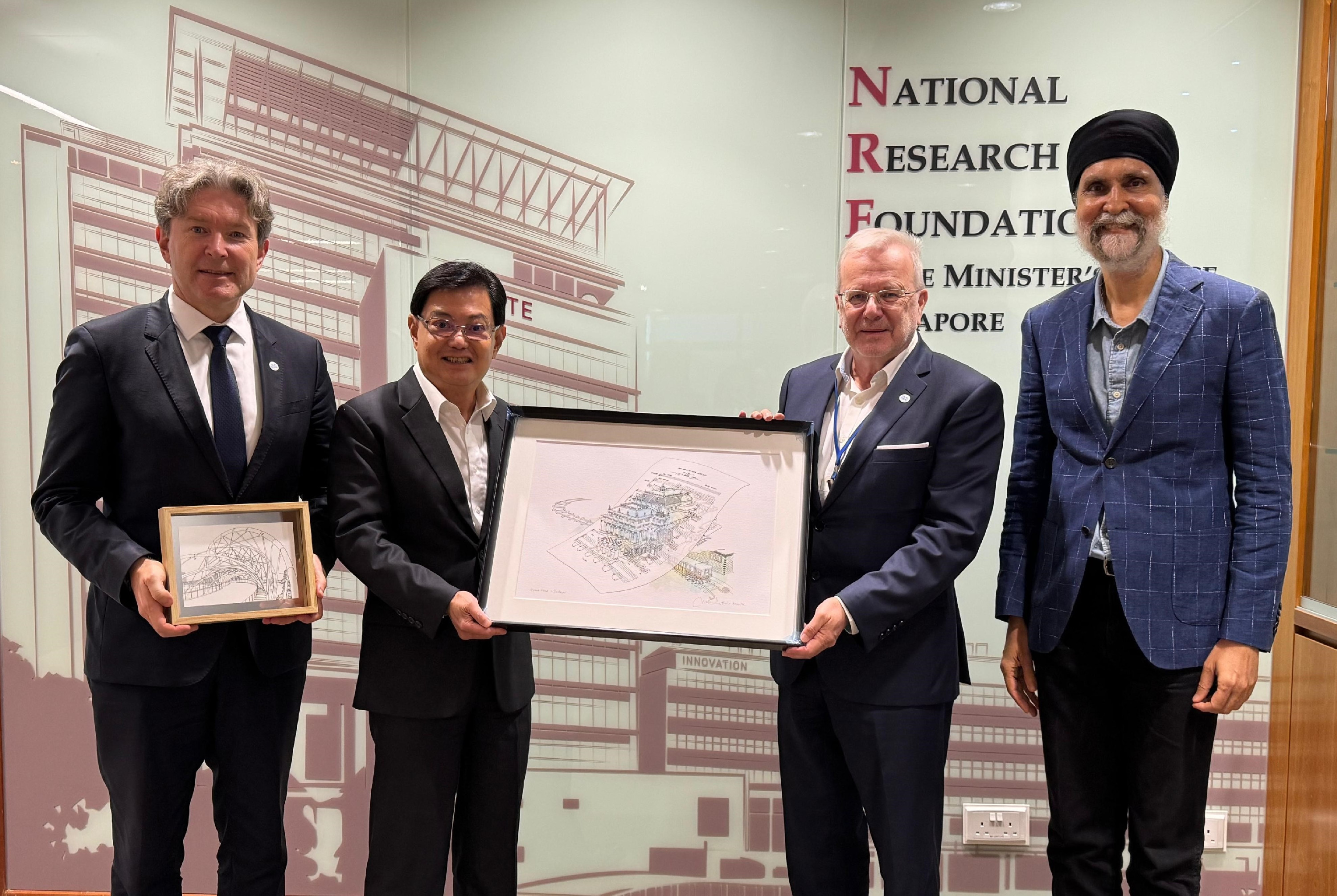Science and faith meet in Budapest — Day Two at the SciFaiR Summit 2025
How can science and religion intersect — especially when it comes to quantum physics and the Christian faith? What might a theology of science contribute? Where should we draw the ethical line on enhancing human capabilities through technology? These were among the questions explored at HUN-REN’s Science, Faith and Religion Summit 2025.
Speaking on Day Two of the SciFaiR Summit 2025, Mark Harris, Andreas Idreos Professor of Science and Religion and Director of the Ian Ramsey Centre for Science and Religion at the University of Oxford, said: ‘Science and religion are not necessarily in opposition; they seek to understand the world from different perspectives.’ In his view, science explains how the world works, whereas theology helps us understand why it has meaning and purpose. A ‘theology of science’ can, in turn, help us grasp why the world is rational and intelligible — that is, why the laws of nature hold.
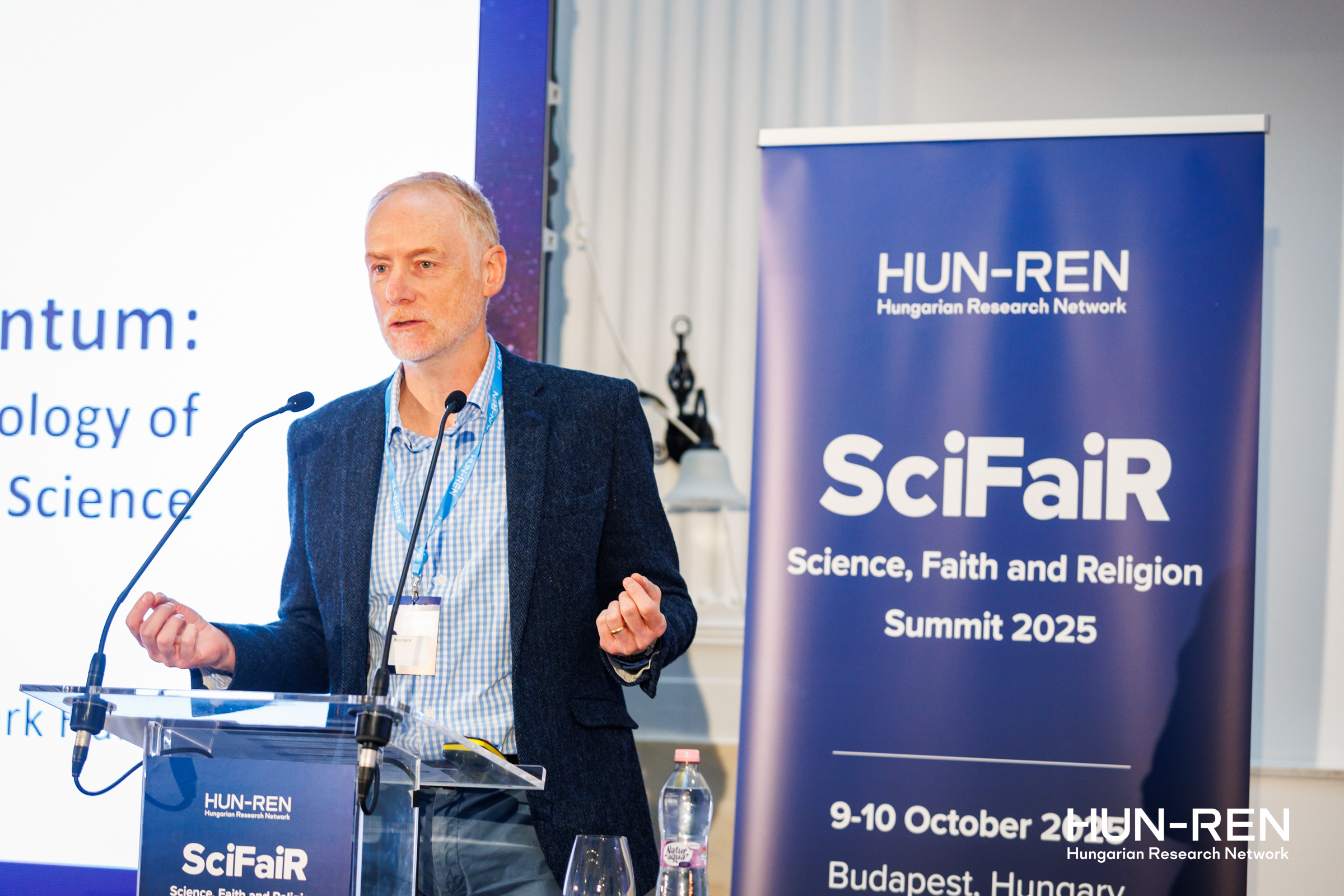
Fotó: Marton Nagy
Following Professor Harris, Monsignor Tomasz Trafny of the General Secretariat of the Synod spoke next. He noted that whereas the aim of science was once to observe and describe nature, today we increasingly seek to influence — indeed, to transform — it. One such area is human ‘enhancement’ — the technological augmentation of human capabilities.
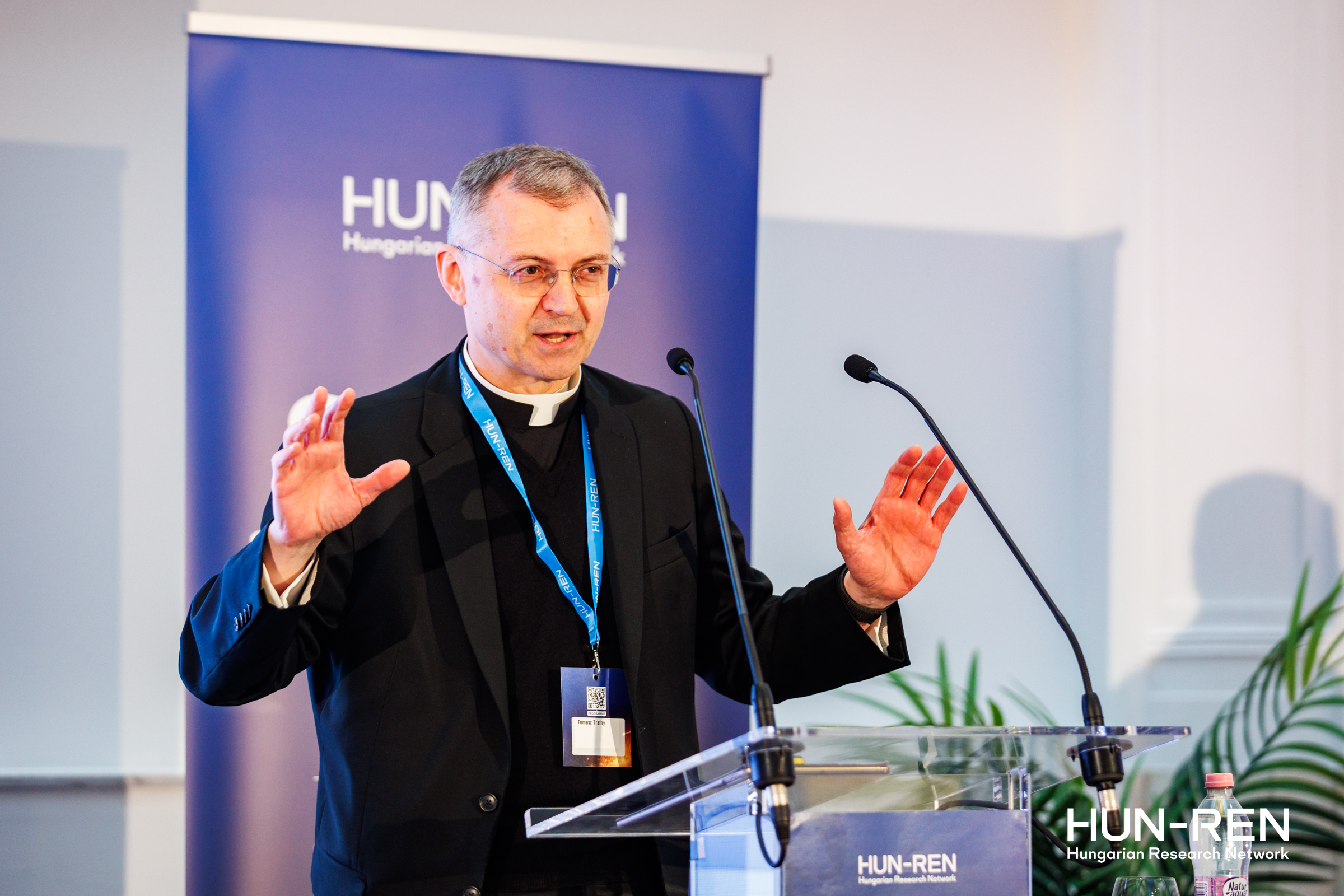
Fotó: Marton Nagy
Technology, ethics and transhumanism: ensuring scientific progress remains human-centred and responsible
Following the lecture, the panel discussion likewise centred on human ‘enhancement’ and transhumanism — the drive to use technology to enhance, and even transform, human beings.
Guido van Steendam, Professor Emeritus at KU Leuven; Miklós Vassányi, Associate Professor at Károli Gáspár University of the Reformed Church in Hungary; and Balázs Gulyás, President of HUN-REN, agreed that this is not only a scientific matter but also a profoundly ethical and theological one. The discussion addressed which moral principles should guide the assessment of these developments and the extent to which we can influence the process.
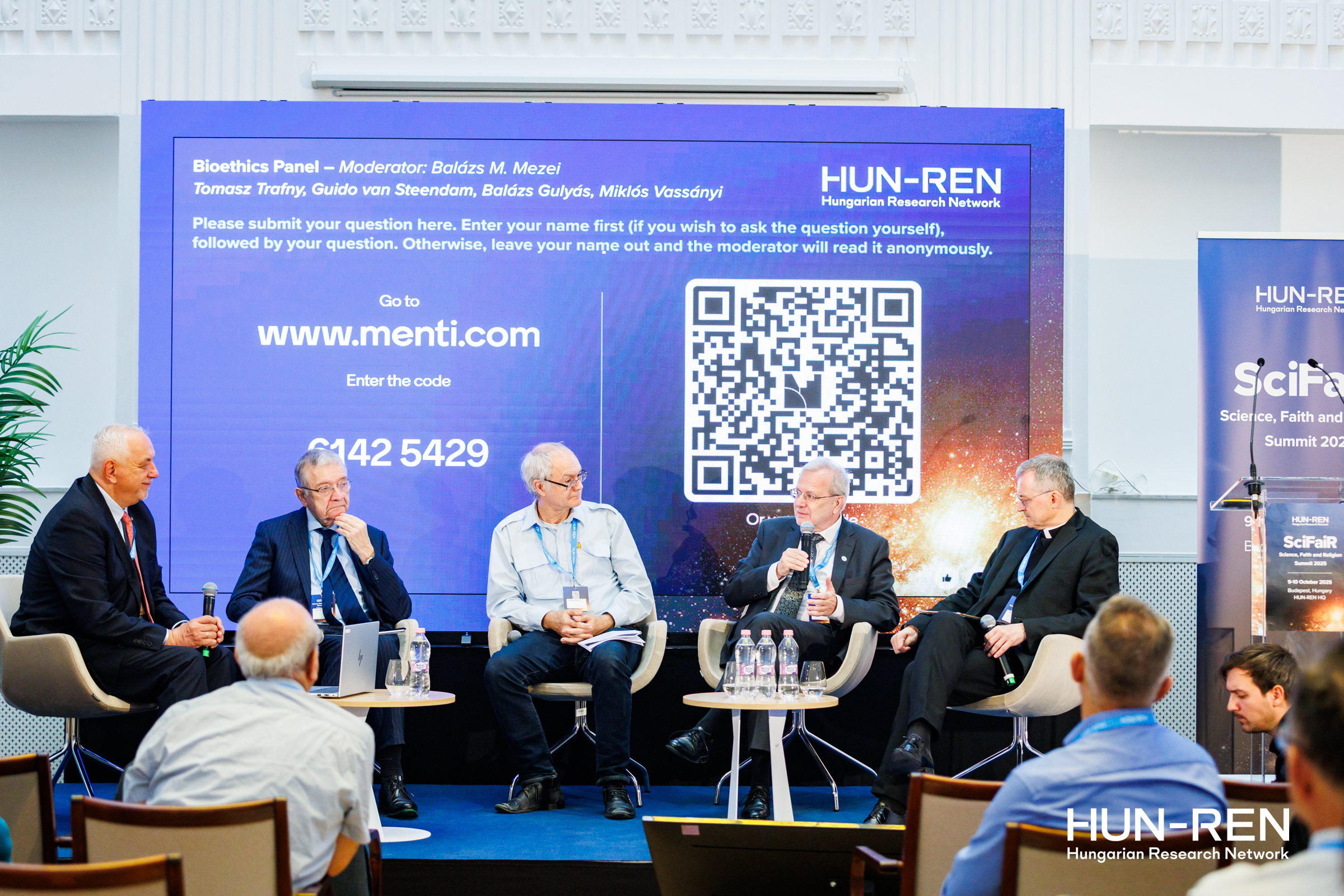
Fotó: Marton Nagy
Balázs Gulyás, President of HUN-REN, said that as a researcher he is not seeking immortality but aims to extend healthspan. He added: ‘We have a duty to do so, because on Earth we must live in health and with dignity. Death is a natural part of evolution. “Eternal life” on Earth is neither possible nor our aim.’
The participants agreed that transhumanism is unstoppable because the desire to transcend limits is part of human nature. At the same time, they warned that if technological development leads to inequality and a spiritual crisis, it is no longer progress but a danger. Above all, scientific progress must remain human-centred and responsible.
The order of nature and divine intention — reflections on evolution
Denis Alexander, Research Professor at the Faraday Institute for Science and Religion, Cambridge, spoke about the purpose, direction and limits of biological evolution. He examined whether evolution is purely the result of chance. He argued that many people misunderstand evolution, treating it as a philosophy or worldview rather than as a scientific theory.
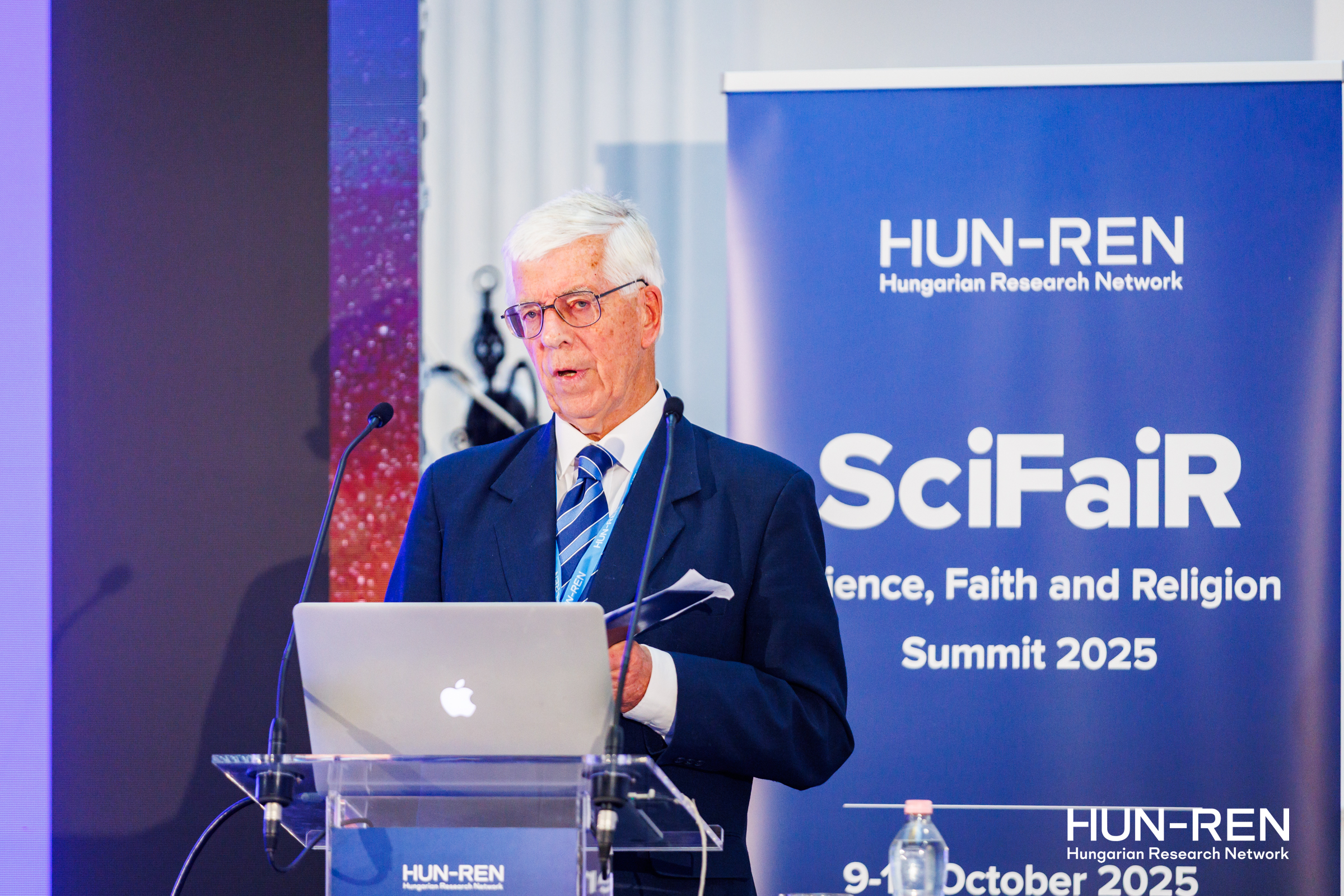
Fotó: Marton Nagy
He added that none of this proves the existence of God, but it is consistent with the idea of a creator who fashioned the world with purpose and order. Evolution, therefore, does not exclude faith; it can complement it, since many discern divine intention in the order and development of nature.
On the final day, the closing panel discussion centred on how scientific theories can become ideologies and how culture, religion and philosophy shape how we interpret science. Professor Andrew Briggs used the example of the speed of light to show that science is rarely wholly objective — many scientific interpretations depend on cultural context. He reminded the audience that Darwin’s theory of evolution has been understood very differently across cultures. Professor Denis Alexander added that biology is a particularly sensitive subject because it concerns human identity.
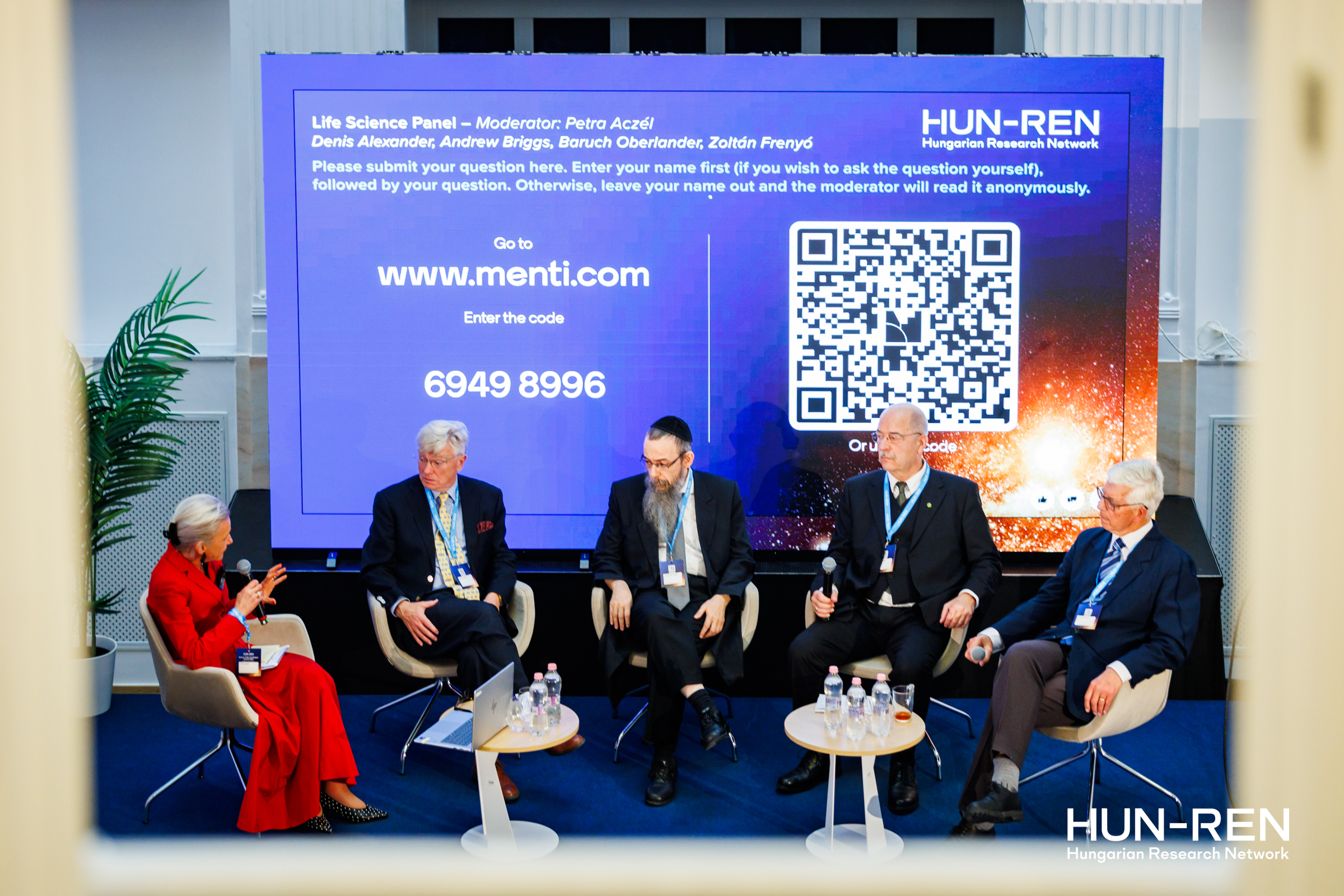
Fotó: Marton Nagy
Zoltán Frenyó, a lead researcher at Pázmány Péter Catholic University, approached the topic from a philosophical perspective. He noted that the idea of ‘linear progress’ stems from Christian culture, whereas other civilisations have adopted a cyclical view of time. In his view, human nature remains fundamentally constant, yet can be continually shaped — and for that we need culture, ethics and religion.
As the panel drew to a close, the discussion turned to questions of technological development, human ‘enhancement’ and ethics. Professor Andrew Briggs noted that technologies such as AI and gene editing are advancing more rapidly than ethical reflection, posing serious risks. Professor Denis Alexander cautioned that humanity should not focus solely on self-enhancement but must also address poverty and inequality.
Reverence and religion in science
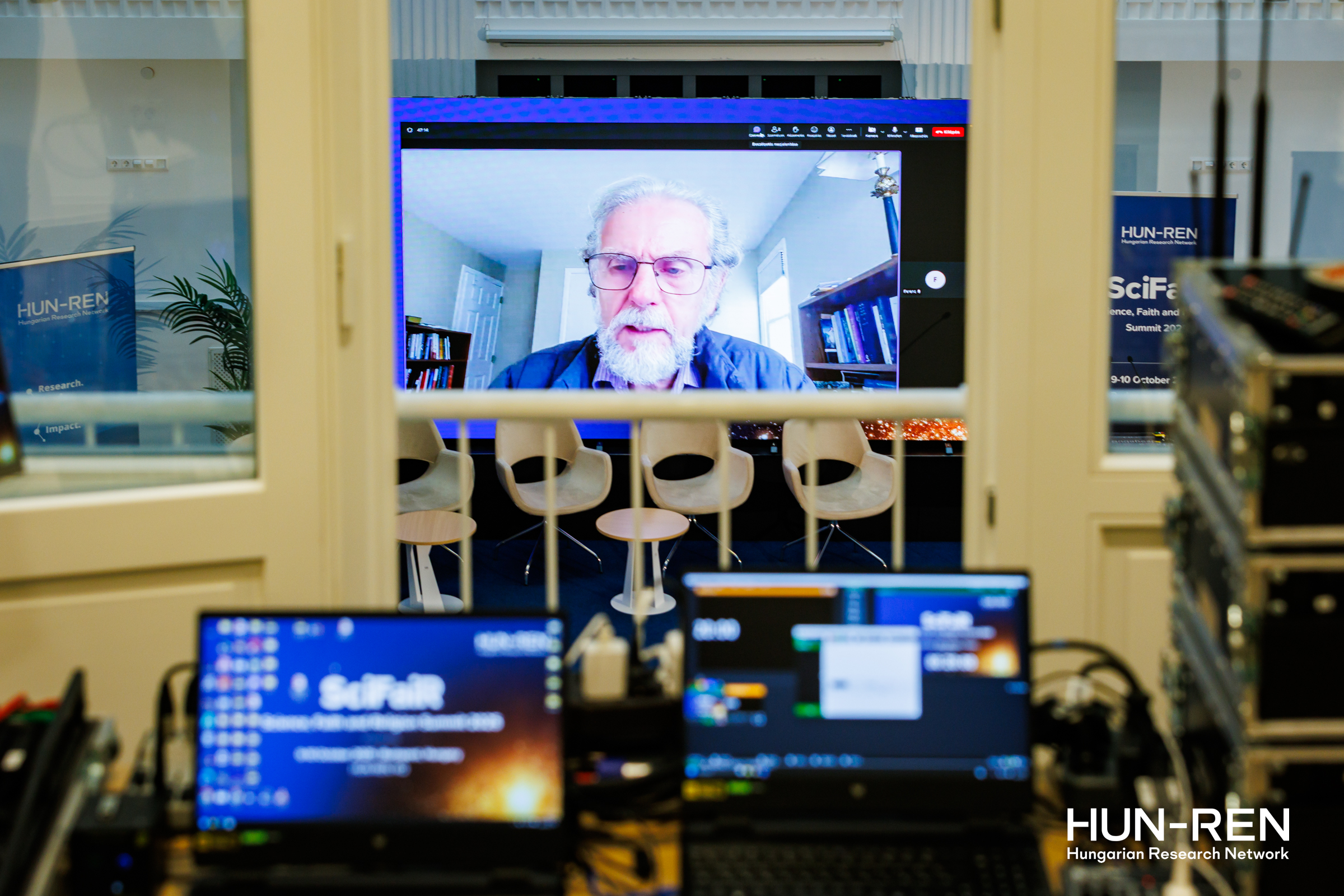
Fotó: Marton Nagy
SciFaiR Summit 2025 underscored the need for dialogue between science and faith
Professor Petra Aczél, Head of the Management Campus at Széchenyi István University in Győr, concluded the conference by noting that SciFaiR Summit 2025 was unique in bringing leading scholars to explore the most timely topics at the intersection of science, faith and religion. ‘At such an exceptional gathering, where we address the great questions of our existence, it becomes clear that there are things we cannot understand or convey solely through technology. For this, we need the human element — and we always will,’ she emphasised.
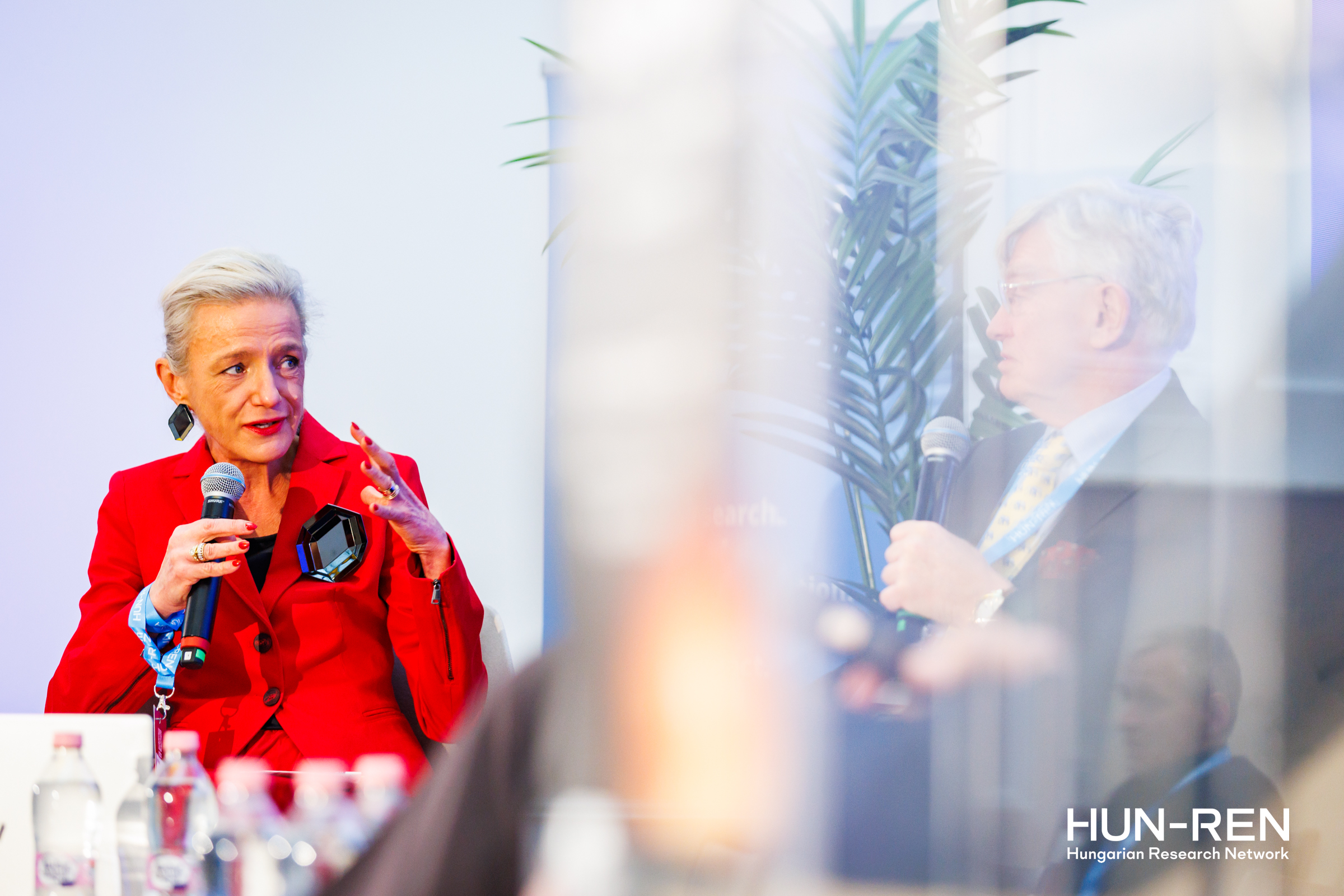
Fotó: Marton Nagy
According to Petra Aczél, one of the greatest problems of our time is that, because of rapid change, we live in ‘future shock’ and struggle to navigate uncertainty. Meanwhile, society celebrates ‘disruption’ (constant change) and the ‘superhuman’ (self-optimisation and perfection), yet these do not yield true wisdom. ‘We often accumulate data and information, but we forget that real knowledge springs from understanding and wisdom,’ she said.
In her assessment, SciFaiR Summit 2025 demonstrated that we can think about the future without losing our humanity or depth of thought.
In his closing address, Balázs Gulyás, President of HUN-REN, thanked participants for coming to Hungary and for sharing their reflections on the relationship between science and faith. He invoked the Dunning–Kruger effect, which holds that those with limited knowledge often overestimate their abilities, whereas those who are truly knowledgeable tend to be modest because they recognise how much they do not yet know. He added that SciFaiR Summit 2025 was a gathering of the latter: ‘Excellent yet humble scientists came together, remaining open to learning.’
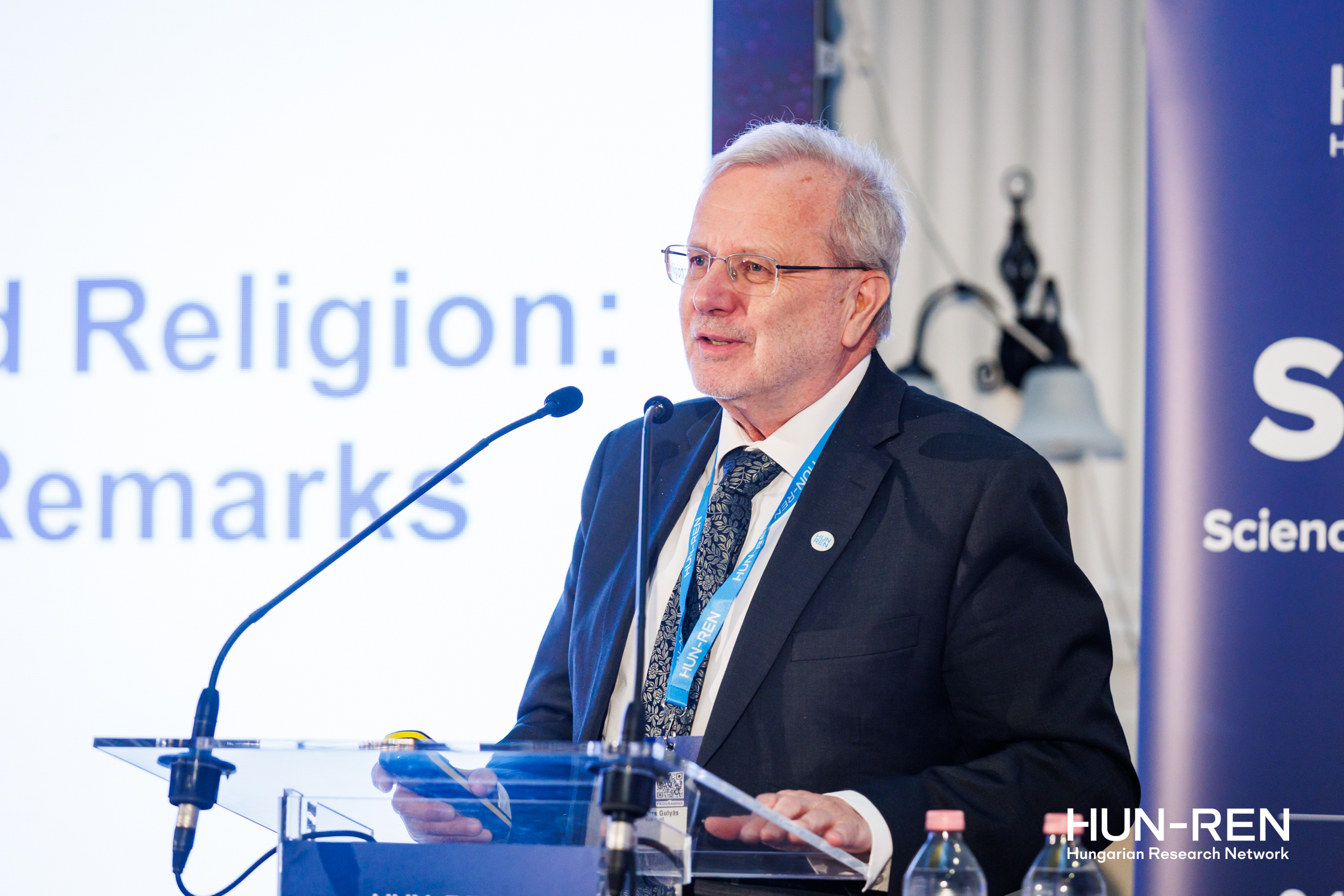
Fotó: Marton Nagy
‘Science does not take place only in laboratories; it also seeks answers to the great questions of life. Science and faith are not opposites but complements in the search for truth,’ he stressed. He added that further dialogue, exchanges and meetings are needed, as there is still much to understand and study at the intersection of science, faith and religion.
Read our Day One summary.
